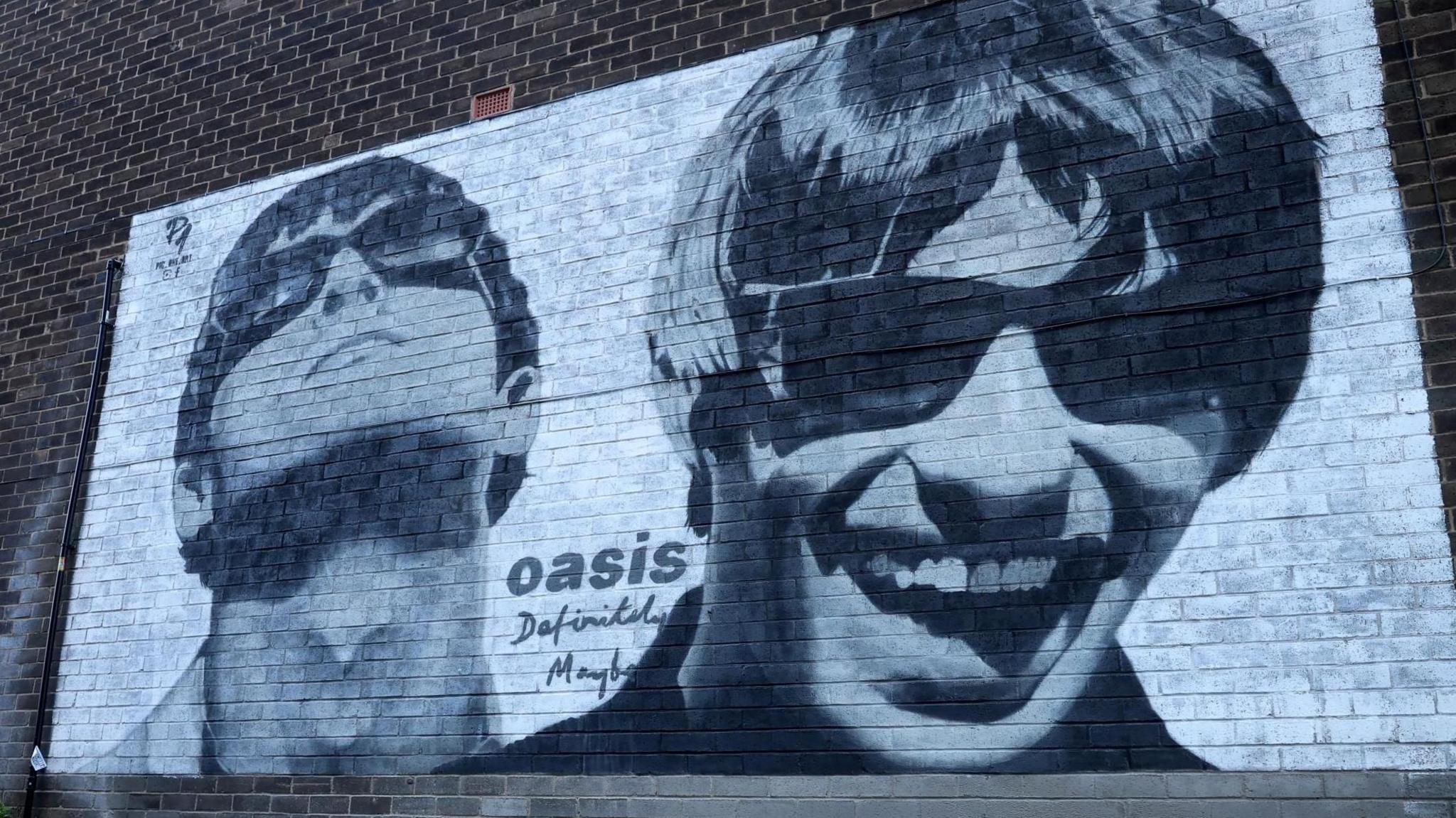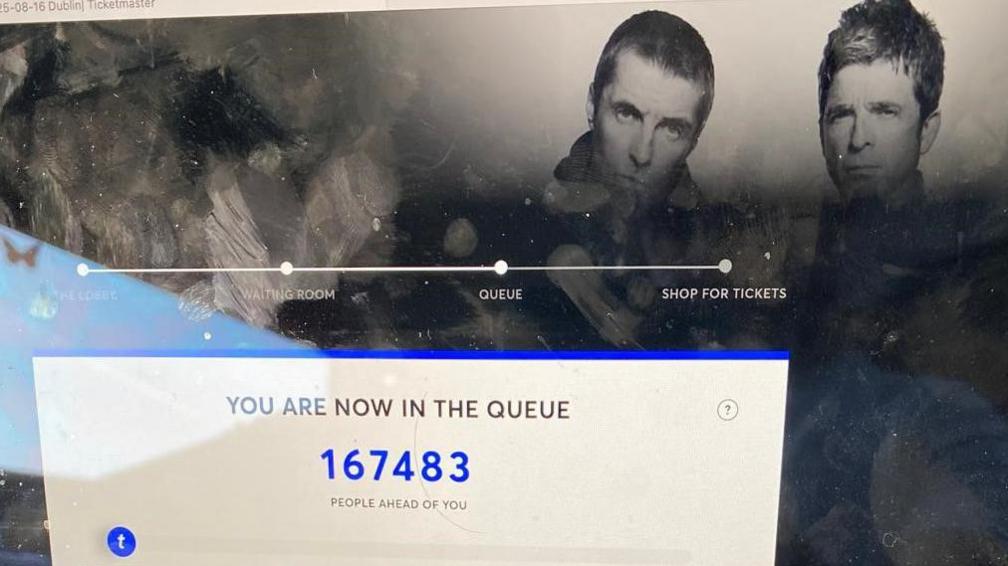Oasis ticket price rises shocking - Irish deputy PM

Dynamic pricing is allowed under consumer protection laws
- Published
Price increases for Oasis gigs in Dublin were "shocking" and involved "a kind of runaway inflation", the tánaiste (Irish deputy prime minister) has said.
There has been widespread criticism of the process known as "dynamic pricing".
It meant that on Ticketmaster, where tickets to the reunion tour were originally sold and where prices rose in line with demand, the cost of some standing tickets at Croke Park in Dublin rose from €176 (£148) on pre-sale to more than €400 (£337).
Tánaiste Micheál Martin said there was a role for the Competition and Consumer Protection Commission (CCPC) to investigate it.

Ticketmaster has defended the way it sells tickets.
The UK government has said there will be a review looking at the transparency and use of dynamic pricing, including the technology around queuing systems which incentivise it.
Many fans reported being in lengthy digital queues, technical issues, and significantly higher than expected ticket prices.
Mr Martin told RTÉ on Sunday there was still time for "redemption" from the organisers and he hoped they would reflect on what had happened.
"There are a lot, a lot of disappointed people out there from the perspective of what they would see as price gouging," he added.
The band have announced two gigs at Croke Park on 16 and 17 August along with 15 other nights at venues in the UK.
In a statement, the CCPC said that under consumer law in Ireland, people should be clearly informed of the full price of a product, including fees, before they buy.
Its role is to ensure that consumers are provided with clear and accurate information, including booking and related charges before they pay, it added.
What is dynamic pricing?
Schellion Horn, competition economist at accounting firm Grant Thornton, told BBC Radio 4's Today programme that dynamic pricing was about setting the price around supply and demand.
That means as demand for tickets goes up, then the price rises to match that.
Ms Horn suggested there was a "realisation that actually the tickets were under priced" when the sale first started on Saturday, given there were so many people in online queues.
People were "clearly willing to pay prices of £300-400", she added, otherwise they would not have parted with their money.
But she said the problem was people were not aware that dynamic pricing was in operation and so there was a lack of transparency.
"We see it all the time, whether it's Uber or airline tickets or holidays or train tickets, so we're very very used to dynamic pricing...but I think this was the first time we've really seen it for concert tickets in the UK and people just weren't expecting it and I think that's where the issue came in," she said.
Ticketmaster has said it does not set prices and that it is down to the "event organiser" who "has priced these tickets according to their market value".
Meanwhile, ticketing websites were praised for coping with the "enormous demand" for Oasis tickets by Jonathan Brown, chief executive of the Society of Ticket Agents and Retailers, who insisted prices would have been set by the band.
Oasis and the band's promoter have not responded to these claims.
'Depressing'
UK Culture Secretary Lisa Nandy said it was "depressing to see vastly inflated prices excluding ordinary fans".
She added that the UK government would "include issues around the transparency and use of dynamic pricing, including the technology around queuing systems which incentivise it".
A consultation into ticket resale websites had already been announced by the UK government, and will start in the autumn.
Belfast South MP Claire Hanna, said the process of dynamic pricing "prices ordinary fans out of music events, it makes it not just a lottery but it’s more than a bit unfair".
"I do think there’s an opaque organisation there in terms of Ticketmaster. I absolutely support those efforts to have a fairer outcome for people who want to see music, " the Social Democratic and Labour Party deputy leader told the BBC's Good Morning Ulster programme.